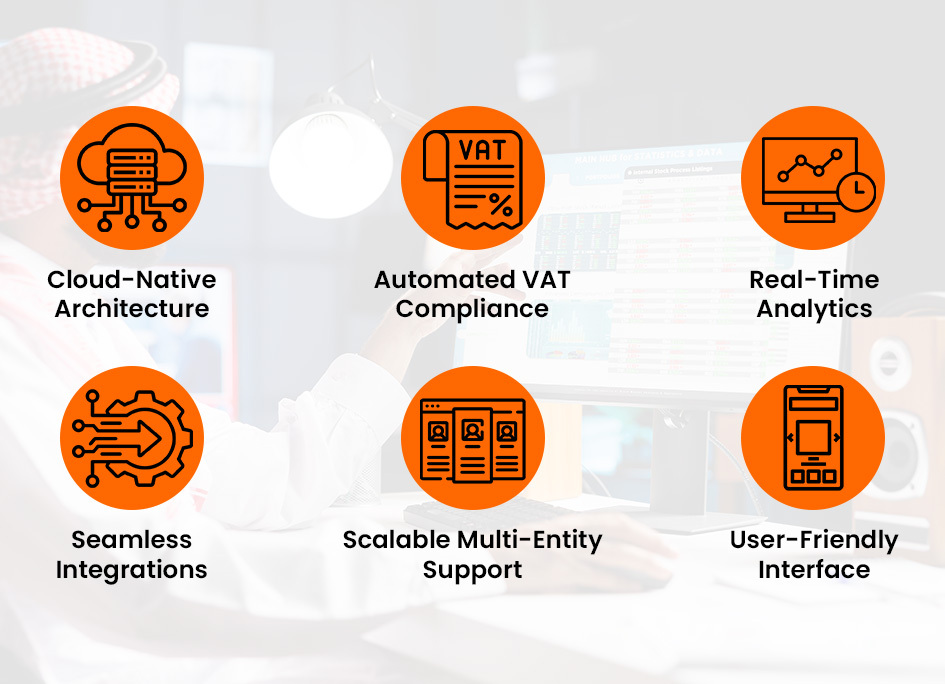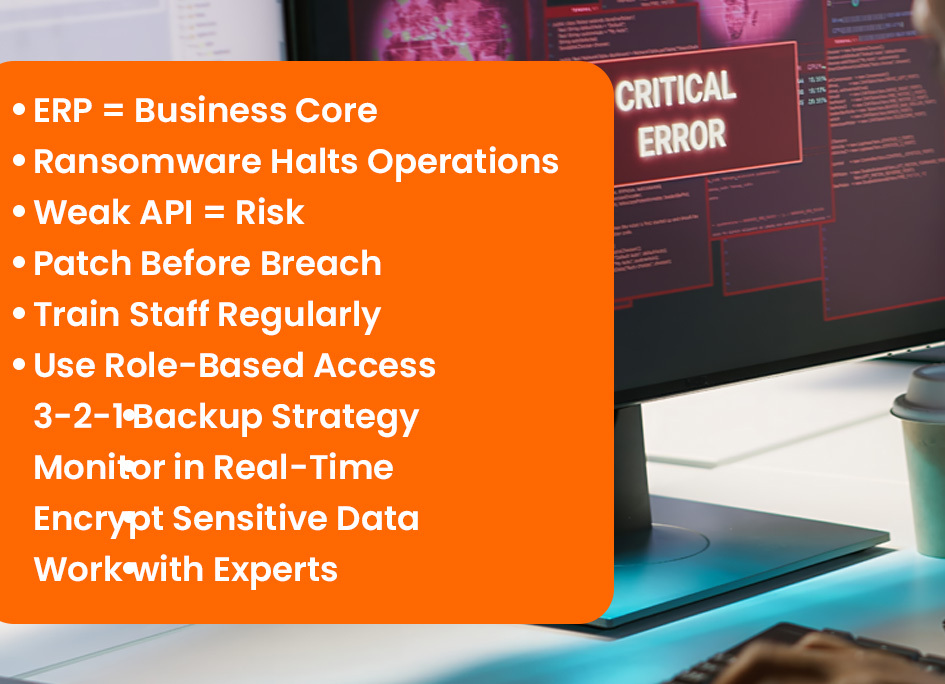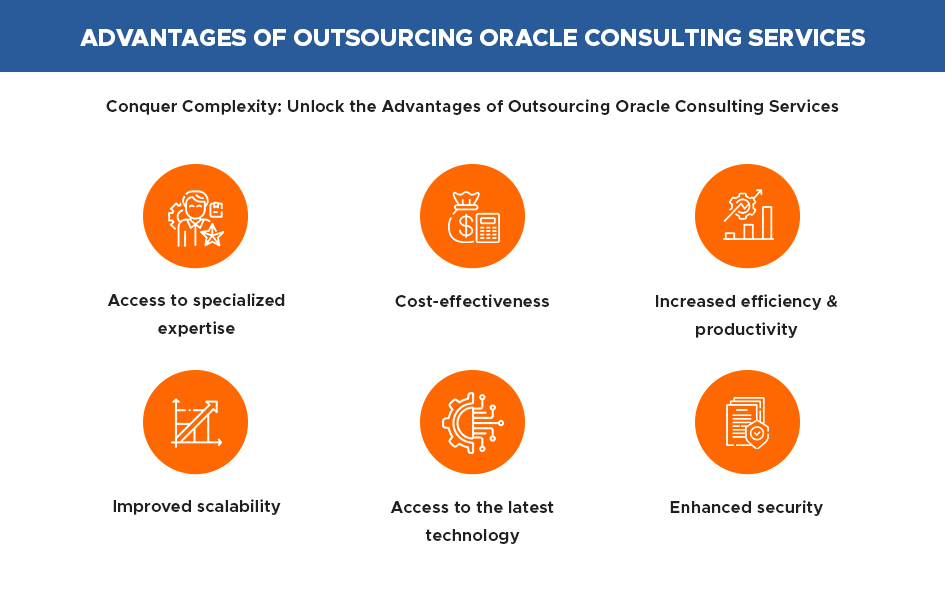
Still using Tally ERP9 may be holding your business back. Discover what you’re missing.
Tally ERP9 has long been a trusted workhorse for small and medium businesses in the UAE and beyond. But as businesses in the UAE grow more complex, with evolving VAT regulations, distributed teams, and the need for real-time insights, traditional desktop-based systems like Tally ERP9 struggle to keep up.
Selecting a Tally ERP9 alternative isn’t just about replacing software. It’s about finding a smarter, scalable platform that can support your business now and into the future.
In this guide, we’ll help you evaluate what to look for in a modern ERP: cloud-native access, automated UAE VAT compliance, scalable modules, and intelligent reporting. We also explore why Oracle Cloud ERP is a leading choice, offering built-in automation, strong data security, seamless integrations, and real-time analytics to support smarter decisions.
Whether you’re running a growing SME or a multi-location enterprise, this blog will help you choose an ERP that not only replaces Tally in UAE, but unlocks new levels of growth, visibility, and efficiency.
Selecting a new ERP is a strategic decision that impacts every aspect of your business. The right alternative must not just replace Tally but transform your operations.
Choosing an oracle cloud ERP consulting firm with these capabilities means you’re not just switching software—you’re building a platform for sustainable growth.

Among modern ERP solutions, Oracle Cloud ERP stands out as a future-proof choice tailored for enterprises that require agility and scale.
Oracle Cloud ERP not only replaces Tally ERP9’s core functionalities but elevates your entire business ecosystem.
| Feature | Tally ERP9 | Oracle Cloud ERP9 |
|---|---|---|
| Cloud Access | No | Yes – 24/7 access from any device |
| Integration | Limited, mostly manual | Seamless with APIs and connectors |
| VAT Compliance | Manual Processing | Automated UAE VAT & global tax supports |
| Reporting | Basic financial reports | Real-time dashboard with drill-downs |
| Scalability | Best for SMEs | Built for global enterprises & growth |
| User Experience | Traditional desktop interface | Modern, intuitive cloud UI |
This isn’t a marginal upgrade—it’s a transformation that redefines how you run your business.
Switching ERP systems may feel daunting, but careful planning ensures your business keeps running smoothly.
Tally ERP9 was built with simplicity in mind, perfectly suited for early-stage or smaller enterprises focused on accounting basics. However, the business landscape has shifted:
Many companies find that Tally ERP9’s desktop-bound architecture and limited features are no longer enough to meet these demands.
If you’ve found yourself adapting workarounds or “making it work” despite these limitations, you’re part of a growing trend. The good news: viable alternatives exist that bring new capabilities without losing core accounting functions.
Any UAE enterprise seeking to scale or streamline operations can benefit. Key sectors include:
Each industry gains unique value through ERP modernization that breaks down silos and automates routine tasks.
SoftArt has empowered a broad spectrum of UAE enterprises to successfully transition from legacy systems like Tally ERP9 to modern Oracle Cloud ERP solutions.
SoftArt’s consultative approach ensures your new ERP solution not only fits your current needs but also lays a foundation for long-term growth and innovation.
Oracle Cloud ERP is tailor-made for the UAE’s dynamic business landscape, with built-in support for local tax regulations—including VAT—and seamless multi-currency operations. Its cloud-native, scalable architecture not only meets the demands of the local market but also empowers businesses to expand confidently, whether regionally or globally, without the fear of technology bottlenecks holding them back.
Holding on to Tally ERP9, however, means more than just sticking with legacy software—it’s limiting your business’s potential for agility, insight, and innovation. In today’s fast-paced environment, modern ERP systems like Oracle Cloud ERP unlock new levels of efficiency, enable real-time data-driven decisions, and provide seamless oracle erp cloud integration across all your business functions.
Remember, your ERP system is the engine that drives your business forward. Don’t let outdated technology stall your progress or restrict your ambitions.
Explore the powerful Tally ERP9 alternatives available in the UAE, partner with trusted experts like SoftArt, and unlock the next chapter of growth and transformation for your business.
Q. Why should I switch from Tally ERP9 to a modern ERP like Oracle Cloud ERP?
Ans. Tally ERP9 is ideal for basic accounting but lacks scalability, cloud access, and advanced features needed for growing UAE businesses. Modern ERPs offer real-time insights, compliance automation, and seamless integrations.
Q. How does Oracle Cloud ERP handle UAE VAT compliance?
Ans. Oracle Cloud ERP has built-in UAE VAT compliance and automates tax calculations and reporting, ensuring accuracy and reducing manual errors.
Q. Can Oracle Cloud ERP support multi-location or multi-entity businesses?
Ans. Yes, Oracle Cloud ERP is designed for scalability and supports multi-location, multi-entity, and even global operations seamlessly.
Q. What are the benefits of cloud-based ERP compared to desktop-based systems like Tally ERP9?
Ans. Cloud ERP provides anytime-anywhere access, real-time collaboration, automatic updates, enhanced security, and easier integrations, unlike desktop-based Tally ERP9.
Q. How can I ensure a smooth transition from Tally ERP9 to a new ERP system?
Ans. A successful transition involves assessing current pain points, cleansing data, partnering with experienced consultants, involving users early, phased rollouts, and ongoing optimization.
Think Your ERP Is Safe from Hackers? One Missed Update Could Shut Down Your Entire Business.
When hackers infiltrate your network, they aren’t just looking for credit card details or personal data. Increasingly, they’re targeting what truly runs your business — your Enterprise Resource Planning (ERP) system. A single vulnerability can allow ransomware to take control, encrypt your data, and freeze your operations.
Knowing how to safe ERP from hackers has become a critical priority, as these attacks don’t just target isolated systems — they disrupt the interconnected backbone of your entire enterprise. When one ERP module is compromised, the effects ripple across departments — from procurement and inventory to human resources and financial accounting.
ERP ransomware attacks aren’t a hypothetical risk — they’re a rapidly escalating reality that’s reshaping cybersecurity priorities across industries.
ERP systems power critical business functions — from finance and HR to supply chain and CRM — making them prime targets for ransomware. A single breach can cripple operations, expose sensitive data, and force costly downtimes.
Interconnected systems and weak third-party links only increase exposure.

Preventive measures like timely patching, restricted access, secure integrations, and continuous monitoring are essential. Building ERP-specific security into your broader strategy is key to staying protected.
When ransomware hits an ERP, the damage goes beyond ransom payments. Companies face:
These consequences aren’t limited to large enterprises. Mid-sized firms using cloud-based ERP systems are equally vulnerable, especially if they lack dedicated cybersecurity teams.
Business leaders often assume the IT team has ERP security under control. But ERP systems span departments, processes, and even third-party integrations. That makes their security everyone’s responsibility — especially at the leadership level.
Business decision-makers must understand how their areas of operation tie into ERP systems and how vulnerabilities in their workflows — like poor password hygiene or unapproved third-party tools — can increase the risk of an attack.
Security awareness must become a cultural priority, driven from the top down. Cybersecurity investments should not be viewed as discretionary IT expenses but as vital components of enterprise risk management.
Hackers don’t usually barge in through the front door. They wait for the back window to open. Here’s how:
In multiple documented ransomware incidents, organizations experienced crippling disruptions as entire business operations were brought to a standstill due to compromised ERP systems. For example, a global manufacturing company faced a ransomware attack that halted operations across over 150 locations, leading to manual intervention and operational delays. Another city municipality suffered an ERP-related breach, which disrupted its finance, HR, and public services departments, with recovery costs estimated to exceed tens of millions.
These real-world scenarios reveal the critical dependency businesses have on ERP platforms and highlight the profound consequences of inadequate cybersecurity measures.
The financial toll? Often in the tens of millions — not to mention the intangible but devastating impact on brand equity, customer loyalty, and stakeholder trust. A single breach can lead to clients severing ties, delays in supply chain operations, and long-term reputational damage that could take years to repair. For many businesses, the cost of recovery extends far beyond IT and directly affects strategic growth and market competitiveness.
Map out all modules, integrations, and access points. Include both technical vulnerabilities and procedural gaps.
Limit privileges based on job functions. Monitor admin activities, enforce password policies, and enable role auditing.
Coordinate with your ERP vendors and apply patches as part of a standardized change control process.
Use industry-standard encryption protocols such as AES-256 and TLS 1.3. Encrypt sensitive configuration files and backups.
Implement SIEM tools to detect unusual access patterns, data movement, or configuration changes.
Adopt a 3-2-1 backup strategy. Store backups offline and use immutable storage to protect against tampering.
Use VLANs and firewalls to isolate the ERP system from general internet-facing networks.
Develop customized training for ERP users. Include phishing simulations and sessions on secure third-party integrations.
Oracle ERP Cloud is a powerful enterprise solution, but its complexity opens doors to integration-related risks.
A well-guarded ERP isn’t just a technical asset — it’s a strategic shield for your business. The cost of prevention is minimal compared to the financial, operational, and reputational damage caused by ransomware attacks. It’s not only about safeguarding data but also ensuring business continuity, client trust, and operational integrity.
Security should never be a one-time checklist. It must be a continuous process, embedded into your ERP governance — from implementation and integrations to ongoing updates, monitoring, and audits.
That’s where SoftArt comes in with deep expertise in Oracle ERP Cloud implementation, we offer end-to-end ERP consulting focused on secure configurations, timely patching, and proactive defense strategies. Whether your systems are cloud-based, on-prem, or hybrid, we ensure your ERP remains scalable, resilient, and ready to withstand modern cyber threats.
Ransomware doesn’t knock politely. It sneaks in through neglected patches, unmonitored APIs, or distracted employees. ERP systems are mission-critical — and that makes them the perfect leverage for hackers.
If you’re serious about business continuity, security must be baked into your ERP — not bolted on as an afterthought. Know your risks, strengthen your defenses, and don’t hesitate to work with specialists who understand how to safe ERP from hackers at every layer.
The risk is real. But with strategic investments in people, processes, and technology, the solution is within reach.
FAQS:
Q. Why do hackers target ERP systems?
Ans. ERP systems hold a wealth of valuable data and control business-critical operations. Disrupting them puts immense pressure on companies to pay ransoms quickly.
Q. Are cloud ERP systems like Oracle ERP Cloud vulnerable to ransomware?
Ans. Yes. While cloud systems are generally secure, improper configurations, weak API security, and third-party integrations can expose them to ransomware attacks.
Q. What is the financial impact of ERP ransomware attacks?
Ans. Companies can lose millions in downtime, face regulatory fines, and suffer long-term reputational damage that affects growth and client retention.
Q. How can businesses prevent ransomware from entering ERP systems?
Ans. Best practices include timely patching, access control, employee training, secure integrations, and continuous monitoring with SIEM tools.
Q. Can mid-sized businesses be affected by ERP ransomware?
Ans. Absolutely. Cyber attackers do not discriminate based on size — mid-sized firms often lack dedicated cybersecurity teams, making them easier targets.
In today’s dynamic business landscape, navigating the intricate world of technology can be a daunting task, especially when it comes to complex systems like Oracle. This is where Oracle Consulting Services emerge as a powerful tool, providing businesses with the expertise and guidance needed to maximize the potential of their Oracle investments.
However, building an in-house team with the specialized skills required can be costly and time-consuming. Enter outsourcing, a strategic approach that allows businesses to tap into a pool of highly skilled Oracle consultants without the burden of building an internal team.
Outsourcing Oracle consulting services involves partnering with an external company to manage your Oracle-related needs. These experts, with their in-depth knowledge of Oracle technologies, can handle tasks like database management, cloud implementation, application development, and business process optimization.
By choosing to outsource, businesses gain access to specialized skills, cost-effectiveness, and increased efficiency, allowing them to focus on core functions and navigate the complexities of the Oracle landscape with confidence.
Oracle Consulting Cloud & Technology Services offer a comprehensive suite of solutions, encompassing:
Oracle Database Management: Expert assistance with installation, configuration, performance optimization, and security management of your Oracle databases.
Oracle ERP Cloud Implementation: Seamless transition to Oracle’s cloud-based ERP solutions, ensuring smooth adoption and maximizing the benefits of cloud technology.
Application Development and Integration: Skilled professionals to develop custom applications tailored to your specific business needs and seamlessly integrate them with your existing Oracle systems.
Business Process Optimization: Streamline your workflows and enhance efficiency by leveraging the expertise of Oracle consultants to identify and implement process improvements.
These services, when utilized effectively, can unlock a plethora of advantages for businesses of all sizes. Let’s go deeper into the key benefits of outsourcing Oracle consulting services.
Building an in-house team of highly skilled Oracle consultants can be expensive and time-consuming. Outsourcing allows you to access a pool of experts readily, eliminating the need for extensive recruitment and training. These consultants possess in-depth knowledge of the latest Oracle technologies and best practices, ensuring your projects are completed efficiently and effectively.
Outsourcing eliminates the need for significant upfront investments in infrastructure, software, and employee benefits associated with building an internal Oracle team. Additionally, you only pay for the services you require, making it a cost-effective solution for businesses with fluctuating needs.
By outsourcing your Oracle needs, you free up your internal IT team to focus on core business functions. This allows them to dedicate their time and expertise to tasks that directly impact your core operations, leading to increased overall efficiency and productivity.
Outsourcing enables you to scale your Oracle expertise seamlessly as your business needs evolve. You can easily access additional resources during peak periods or when undertaking complex projects, ensuring your requirements are met efficiently.
Leading Oracle consulting firms stay up-to-date with the latest advancements in Oracle technology. By outsourcing, you gain access to their knowledge and expertise, ensuring your systems are always optimized and benefitting from the latest advancements in the field.
Cybersecurity threats are a growing concern in today’s digital world. Oracle consulting firms prioritize security and implement best practices to safeguard your data and systems, providing you with peace of mind and increased confidence in your IT infrastructure.
In today’s cloud-dominated landscape, Oracle ERP Cloud Implementation has become a critical consideration for businesses seeking to optimize their operations and gain a competitive edge. Outsourcing this process offers several advantages:
Rapid Deployment: Experienced consultants can expedite the transition to your new cloud-based ERP system, minimizing disruption to your daily operations.
Reduced Costs: Cloud-based solutions eliminate the need for costly hardware and software investments, making it a financially viable option for businesses of all sizes.
Increased Scalability and Flexibility: Cloud-based systems readily adapt to your evolving needs, allowing you to scale your resources up or down as required.
Enhanced Security: Cloud providers offer robust security measures to safeguard your data and systems, ensuring greater peace of mind.

By embracing the power of outsourcing Oracle consulting services, businesses can unlock a treasure trove of advantages, paving the way for increased efficiency, optimized operations, and a significant return on investment.
Partnering with a reliable and experienced Oracle consulting provider like SoftArt is the key to maximizing the benefits of outsourcing. SoftArt boasts a team of certified professionals with a proven track record of success in guiding businesses through their Oracle journeys. From database management to cloud implementation, SoftArt offers a comprehensive suite of services tailored to meet your specific needs and goals.
Whether you’re seeking to optimize existing Oracle systems, embark on a cloud migration journey, or leverage the power of Oracle ERP solutions, SoftArt’s team of experts is equipped to provide the guidance you need to navigate the Oracle landscape with confidence. So, take the first step towards achieving your Oracle aspirations, and contact SoftArt today to unlock the true potential of your technology investments.